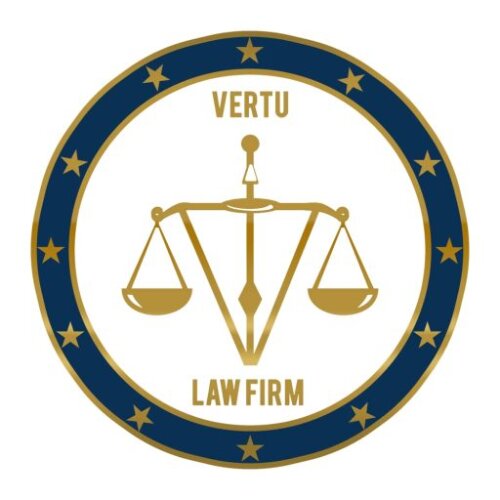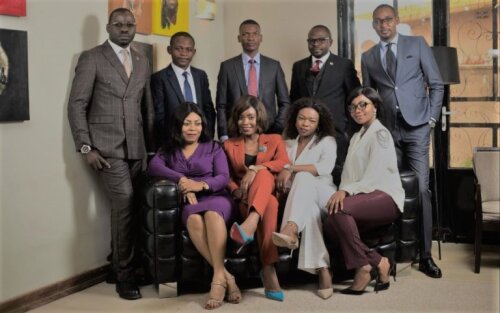Best Merger & Acquisition Lawyers in Lubumbashi
Share your needs with us, get contacted by law firms.
Free. Takes 2 min.
List of the best lawyers in Lubumbashi, DR Congo
About Merger & Acquisition Law in Lubumbashi, DR Congo
In Lubumbashi, the second-largest city in the Democratic Republic of Congo (DR Congo), Merger and Acquisition (M&A) law forms the basis of significant transactions involving the consolidation of companies or assets. Focused on the legal and financial aspects of these deals, M&A law is a complex field that necessitates deep understanding of DR Congo's legal landscape and financial ecosystem. This may involve diverse factors including due diligence processes, shareholders' rights, competitive effects of an M&A, employees’ rights, and tax implications.
Why You May Need a Lawyer
In every M&A transaction, legal advice is fundamental due to the vast amount of regulatory, financial and legal intricacies involved. Lawyers specialized in M&A support businesses and their shareholders to make informed decisions by analyzing the potential risks and benefits of these transactions. They help ensure compliance with local and international laws, craft the right strategy, conduct due diligence, negotiate the deal, and secure approvals. If you're considering selling your company, acquiring another, or merging with a competitor, you'll likely need legal assistance to navigate this complex process.
Local Laws Overview
In DR Congo, M&A activities are governed primarily by the OHADA Uniform Act. OHADA (Organization for the Harmonization of Corporate Law in Africa) is a system of business laws and implementing institutions adopted by 17 African countries, including DR Congo. Notably, every merger or acquisition must be registered at the Trade and Property Credit Register for publicity purposes. Additionally, DR Congo’s competition law plays a crucial role, especially for transactions that involve restraint of competition. Furthermore, the DR Congo Tax Code established regulations on tax payments following an M&A transaction.
Frequently Asked Questions
1. What is the role of the OHADA Uniform Act in M&A?
As a major point of reference for M&A in DR Congo, the OHADA Uniform Act sets guidelines for commercial companies and economic interest groups, incorporating provisions relevant to M&A transactions.
2. How does the Competition Council impact M&As?
The Competition Council ensures anti-competitive practices are circumvented during M&A transactions, assessing the possible effects on local markets and customers.
3. What is the due diligence process in M&A transactions?
Due diligence is the rigorous appraisal process to establish a company's assets, liabilities and evaluate its commercial potential before an M&A transaction goes through.
4. How can an M&A lawyer assist in the negotiation process?
A lawyer can provide valuable insights on terms and conditions, pricing, and risks, ensuring the best possible outcome for their client.
5. What are the tax implications following an M&A transaction in Lubumbashi?
The DR Congo Tax Code highlights various circumstances where taxes may apply following an M&A. The specifics may vary depending on the structure of the deal.
Additional Resources
The DR Congo National Business Federation (FEC) and the OHADA provide useful resources for businesses. In addition, the Ministry of Economy and the Ministry of Finance publish relevant regulations and legislations.
Next Steps
If you're seeking support for M&A transactions in Lubumbashi, your first step should be securing an experienced M&A lawyer. They will help you through the necessary steps including performing due diligence, ensuring legal compliance, and negotiating a potential deal. Always consider the reputation, experience, and success rate of the lawyer or law firm before deciding on legal representation. Remain proactive in understanding the legal aspects of the M&A transaction. Remember, a good M&A lawyer will simplify proceedings, minimizing your exposure to risk and ensuring your interests are well-protected.
Lawzana helps you find the best lawyers and law firms in Lubumbashi through a curated and pre-screened list of qualified legal professionals. Our platform offers rankings and detailed profiles of attorneys and law firms, allowing you to compare based on practice areas, including Merger & Acquisition, experience, and client feedback.
Each profile includes a description of the firm's areas of practice, client reviews, team members and partners, year of establishment, spoken languages, office locations, contact information, social media presence, and any published articles or resources. Most firms on our platform speak English and are experienced in both local and international legal matters.
Get a quote from top-rated law firms in Lubumbashi, DR Congo — quickly, securely, and without unnecessary hassle.
Disclaimer:
The information provided on this page is for general informational purposes only and does not constitute legal advice. While we strive to ensure the accuracy and relevance of the content, legal information may change over time, and interpretations of the law can vary. You should always consult with a qualified legal professional for advice specific to your situation.
We disclaim all liability for actions taken or not taken based on the content of this page. If you believe any information is incorrect or outdated, please contact us, and we will review and update it where appropriate.











